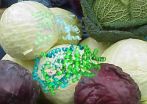(Press-News.org) Along with the excitement and anticipation that come with heading off to college, freshmen often find questions of belonging lurking in the background: Am I going to make friends? Are people going to respect me? Will I fit in?
Those concerns are trickier for black students and others who are often stereotyped or outnumbered on college campuses. They have good reason to wonder whether they will belong – worries that can result in lower grades and a sense of alienation.
But when black freshmen participated in an hour-long exercise designed by Stanford psychologists to show that everyone – no matter what their race or ethnicity – has a tough time adjusting to college right away, their grades went up and the minority achievement gap shrank by 52 percent. And years later, those students said they were happier and healthier than some of their black peers who didn't take part in the exercise.
"We all experience small slights and criticisms in coming to a new school" said Greg Walton, an assistant professor of psychology whose findings are slated for publication in the March 18 edition of Science.
"Being a member of a minority group can make those events have a larger meaning," Walton said. "When your group is in the minority, being rejected by a classmate or having a teacher say something negative to you could seem like proof that you don't belong, and maybe evidence that your group doesn't belong either. That feeling could lead you to work less hard and ultimately do less well."
Walton's paper, co-authored by psychology and education Professor Geoffrey Cohen, reports that the grade point averages of black students who participated in the exercise went up by almost a third of a grade between their sophomore and senior years.
And 22 percent of those students landed in the top 25 percent of their graduating class, while only about 5 percent of black students who didn't participate in the exercise did that well. At the same time, half of the black test subjects who didn't take part in the exercise were in the bottom 25 percent of their class. Only 33 percent of black students who went through the exercise did that poorly.
Walton and Cohen split about 90 second-semester freshmen at a top American university into "treatment" and "control" groups. About half of the students in each group were black; the others were white.
All the test subjects – who were unaware of the full purpose of the exercise – were told the researchers were trying to understand students' college experiences.
Those in the treatment group read surveys and essays written by upperclassmen of different races and ethnicities describing the difficulties they had fitting in during their first year at school. The subjects in the control group read about experiences unrelated to a sense of belonging.
The upperclassmen had reported feeling intimidated by professors, being snubbed by new friends and ignored in their quest for help early in their college careers. But they all emphasized that, with time, their confidence grew, they made good friends and they developed strong relationships with professors.
"Everybody feels they are different freshman year from everybody else, when really in at least some ways we are all pretty similar," one older student – a black woman – was quoted as saying. "Since I realized that, my experience . . . has been almost 100 percent positive."
The test subjects in the treatment group were then asked to write essays about why they thought the older college students' experiences changed. The researchers asked them to illustrate their essays with stories of their own lives, and then rewrite their essays into speeches that would be videotaped and could be shown to future students. The point was to have the test subjects internalize and personalize the idea that adjustments are tough for everyone.
"We didn't want them to think of difficulties as unique to them or specific to their racial group," Walton said of the black test subjects. "We wanted them to realize that some of those bad things that happen are just part of the transition that everyone goes through when they go off to college."
The researchers tracked their test subjects during their sophomore, junior and senior years. While they found the social-belonging exercise had virtually no impact on white students, it had a significant impact on black students.
Along with improved GPAs by their senior year, the black students who were in the treatment group reported a greater sense of belonging compared to their peers in the control group. They also said they were happier and were less likely to spontaneously think about negative racial stereotypes. And they seemed healthier: 28 percent said they visited a doctor recently, as compared to 60 percent in the control group.
Despite the impressive outcomes, Walton and Cohen say the social-belonging exercise isn't a quick fix to closing the academic race gap – a problem fed by a host of issues tied to diversity, socioeconomics and public policy. But their research shows how addressing feelings of belonging can improve student performance. And similar exercises may succeed in addressing concerns about belonging among other groups, like first-generation college students, immigrants and new employees.
"This intervention alone is not the answer, but we know more about what types of things help," Cohen said. "The intervention is like turning on a light switch. It seems miraculous when the lights go on, but it all hinges on the infrastructure that's already in place."
### END
Stanford psychologists design 60-minute exercise that raises GPAs of minority students
2011-03-18
ELSE PRESS RELEASES FROM THIS DATE:
Production of mustard oils: On the origin of an enzyme
2011-03-18
Plants are continually exposed to herbivore attack. To defend themselves, they have developed sophisticated chemical defense mechanisms. Plants of the mustard family, such as thale cress (Arabidopsis thaliana), produce glucosinolates (mustard oil glucosides) to protect themselves against herbivory. Scientists know many different kinds of these molecules; they have a similar structure, but different side chains. If insect larvae feed on mustard plants, glucosinolates are hydrolyzed to form toxic isothiocyanates. Chemists call this the "mustard oil bomb".
Special enzymes ...
Medical Innovation Protection Stressed in EU-India Free Trade Agreement Talks
2011-03-18
The Financial Express published an article on the Free Trade Agreement (FTA) talks that continue between the European Union (EU) and India. One of the most discussed and disagreed upon parts of the proposed FTA involves the need for protecting the intellectual property of pharmaceutical companies in order to promote medical innovation and investment in the development of new medicines and research. This disagreement about whether data exclusivity in the pharmaceutical sector should be included has resulted in the delay of finalizing the FTA.
Pharmaceutical companies ...
Chemical-free pest management cuts rice waste
2011-03-18
In 2006, Maria Otilia Carvalho, a researcher from the Tropical Research Institute of Portugal had an ambitious goal: to cut the huge losses of rice – a staple food crop for half of humanity – due to pests, without using toxic pesticides that are increasingly shunned by consumers worldwide. She realised she could not do it alone and turned to EUREKA to support an international collaboration to address a looming threat to world's rice supplies. Harvested rice is constantly under menace from pest insects and fungi - to avoid the pests, farmers and producers treat the rice ...
Psychological impact of Japan disaster will be felt 'for some time to come'
2011-03-18
The psychological impact of natural disasters such as the Japan earthquake can be revealed in the way people inherently respond to unpredictable situations, according to a psychology expert at Queen Mary, University of London.
Dr Magda Osman, Psychology Lecturer at Queen Mary, University of London, and author of Controlling Uncertainty: Decision-making and Learning in Complex Worlds, said the disaster had a devastating immediate effect on tens of thousands of people in Japan but the true psychological impact will be felt "for some time to come".
"A disaster like the ...
New plant species gives insights into evolution
2011-03-18
A new plant species is providing an insight into how evolution works and could help improve crop plants, scientists have revealed.
The new plant species, Tragopogon miscellus, appeared in the United States 80 years ago. It came about when two species in the daisy family, introduced from Europe, mated to produce a hybrid offspring.
The species had mated before in Europe, but the hybrids were never successful. However in America something new happened. The number of chromosomes in the hybrid spontaneously doubled, and at once it became larger than its parents and quickly ...
eMaint Enterprises Joins Forces with the Reliability Performance Institute to Sponsor the CMMS-2011 CMMS, April 11-13, 2011
2011-03-18
eMaint Enterprises, headquartered in Marlton, New Jersey has provided maintenance management software solutions since 1986. Dedicated to successful CMMS implementation, eMaint is pleased to be a contributing sponsor of the CMMS-2011 Computerized Maintenance Management Summit, a learning and networking event designed for those seeking to implement a new CMMS/EAM or reimplement an existing CMMS/EAM for more effective maintenance management and decision support. The Summit will take place at the Reliability Performance Institute in Fort Myers, Florida on April 11 - 13, 2011.
eMaint's ...
Labor reforms of past 30 years have hit young people hardest
2011-03-18
A study by the Complutense University of Madrid (UCM), analysing the impact of the labour reforms introduced over the past 30 years and the living conditions of new generations, asserts that these reforms have been the origin and cause of the current development model based on the exploitation of young people.
"The study indicates that the Spanish economic development model over the past three decades – with high rates of economic growth and job creation – is based on the 'over-exploitation of the youngest generations of workers'", Pablo López Calle, author of the paper, ...
Human prejudice has ancient evolutionary roots
2011-03-18
The tendency to perceive others as "us versus them" isn't exclusively human but appears to be shared by our primate cousins, a new study led by Yale researchers has found.
In a series of ingenious experiments, Yale researchers led by psychologist Laurie Santos showed that monkeys treat individuals from outside their groups with the same suspicion and dislike as their human cousins tend to treat outsiders, suggesting that the roots of human intergroup conflict may be evolutionarily quite ancient.
The findings are reported in the March issue of the Journal of Personality ...
Study finds more efficient means of creating, arranging carbon nanofibers
2011-03-18
Carbon nanofibers hold promise for technologies ranging from medical imaging devices to precise scientific measurement tools, but the time and expense associated with uniformly creating nanofibers of the correct size has been an obstacle – until now. A new study from North Carolina State University demonstrates an improved method for creating carbon nanofibers of specific sizes, as well as explaining the science behind the method.
"Carbon nanofibers have a host of potential applications, but their utility is affected by their diameter – and controlling the diameter of ...
Badbeat.com Donates Revenue Percentage to Support UK's Red Nose Day
2011-03-18
Badbeat.com, the original and leading online poker staking business, will be donating 10% of ALL affiliate revenue generated by the Badbeat players on Friday 18th March to Comic Relief in support of Red Nose Day.
The Badbeat management has urged their players to help change lives both in the UK and across Africa, challenging them to raise as much money as possible playing poker day and night!
"Red Nose Day is a day like no other; when the whole country gets together to help change countless lives," said Badbeat Managing Director, John Conroy. "We're incredibly happy ...




